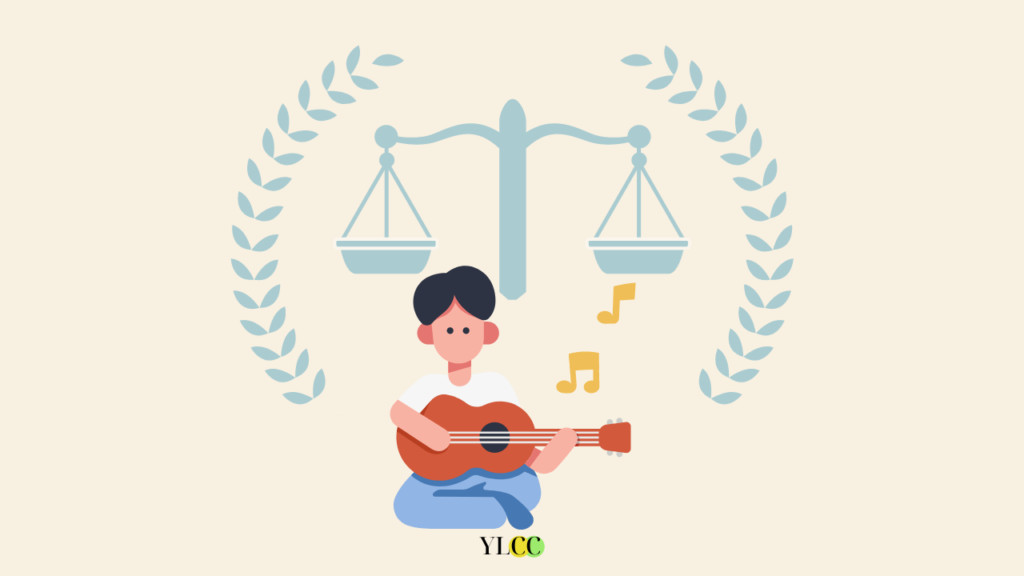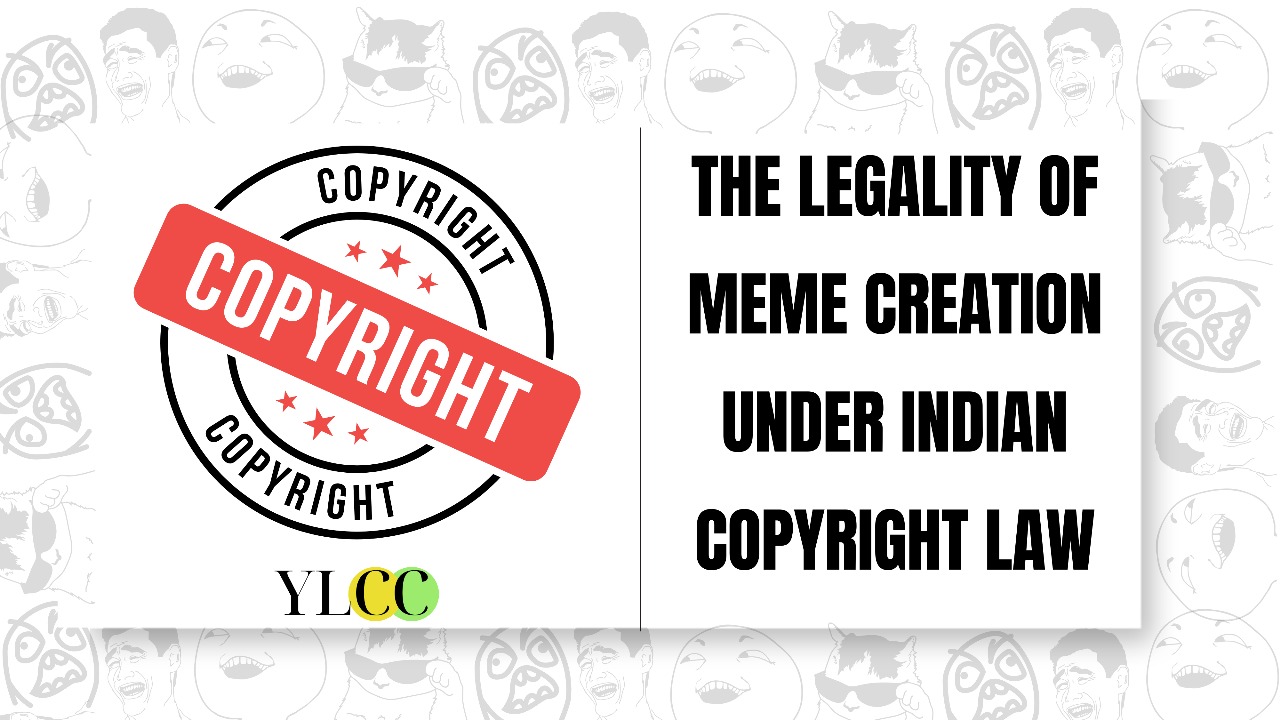
What is Music Law?
Music law refers to the law that affects the music industry. Music is commercially bought and sold in the United States and around the world. Any law that impacts how the music industry does business is part of music law. Music law includes any laws of any kind that apply to the business of creating, selling, performing and listening to music. Music law is a part of entertainment law.
Who does music law impact?
Music laws impact most people in society in one way or another. Music law impacts the people who write music and the distributors who purchase the rights to perform and sell music. Music law also impacts performers who must have a legal right to perform music. Businesses that seemingly have no relation to music law like restaurants must ensure that they comply with music laws when they conduct business. Even consumers must follow music laws.
Music Law in India
The major legislation protecting a Musician’s interest in the country is the Copyright Act of 1957. It was last amended in 2012. Needless to say, the amendments conform to India’s international commitments. India is a member of the Berne Convention and the Universal Copyright Convention. Due to such international obligations, any literary, artistic, dramatic and musical work, published in India, shall be treated the same in the other member countries which are members of the above conventions.
Talking from the musical perspective, the recent 2012 Amendments favour the artists by giving a better ownership control to the songwriters, composers and musicians rather than to the record labels and the producers who are a part of the Indian film industry. These amendments ensure that the creators of the song are the owners of the Copyright and it is mandatory for every broadcaster, broadcasting the song, to pay the appropriate royalties to the creators of the particular song. Another noticeable change brought about by the 2012 Amendment is that a cover version of a song can only be made after the completion of five (5) years from the first recording of the song.
The Music industry, anywhere in the world, survives on the following three pillars:
- The Creators i.e. the singers, songwriters, composers and producers of the song.
- The Release Platforms such as the labels, DIY Musician apps, the distribution and streaming services which are the mediums through which the song can be put out for consumption.
- The Consumption Platforms such as the digital stores, music television channels, the radio and live and public performances.
A creator of a song must choose the right platform to put out his work depending upon his finances, investment, fan base and his familiarity with the industry. For instance, it is always suggested for a new and novice musician to put out his music through independent, streaming and do-it-yourself platforms rather than to pitch his work to a label. Whereas, an artist with the capacity to invest, with a setup, fan base and release plan might approach a label to launch his music.
Every song has the following three components, each of which give rise to specific rights:
- The lyrics and the musical aspect are created by the lyricists, the composers and the producers. These are collectively called Publishing rights and are owned by the respective individual.
- A song comes into existence when it is performed by an artist. Therefore, the performance rights are owned by the performer/artist or the musician. The 2012 amendment added Section 33 to the Copyright Act, which talks about the Performance Rights Organisations (PRO’s) which collect royalties for performance by the artist.
- For a song to be stored in a tangible medium, the recording of the performance needs to be made. The rights of these recordings are owned by the producers and the record labels. These rights are collectively referred to as Master Rights .
The Copyright Act 1957, under Section 2(p), describes a musical work to be – “a work consisting of music and includes any graphical notation of such work but does not include any words or any action intended to be sung, spoken or performed with the music”.[1]
According to the Indian Copyright Laws, the economic rights are said to be exclusive rights. They are also called negative rights as the owner of these rights has the right to prevent and negate the others from using their bundle of works/rights. The following six are the categories of exclusive rights available to the creator of a work under Section 14 (a)[2]:
- The creator of a work has the right to reproduce the work in any material form including the storing of it in any medium by electronic means.[3]
- Mechanical Rights are available to an author to reproduce his music in other mediums/ modes of consumption.
- The creator of a work has the right to sync it to a video format. For instance, add the musical work to a cinematic film, license it to an OTT platform, etc. This is called the Synchronization right.
- Derivative Right is the right of the author to create multiple other works out of the original works.
- The creator of a work has the right to display and communicate the work to the public
- Adaptation Right is the right of the original author to create adaptations of his work . For example an author can translate his literary work into various languages,
- Section 38[4] recognises “Performer’s Rights” of the Singer of a commercially recorded song for 50 years from the “beginning of the calendar year next following the year in which the performance is made”. Therefore, once a Singer has recorded an original song, everyone except the producer/copyright holder needs to get permission and pay royalties in order to play/perform it in public.

Moral rights, on the other hand, are those rights that cannot be assigned, transferred and even waived off. These rights are associated with the jurisprudential theory of property which states that öne’s property is an extension of his personality”. These rights are in conformity to Section 57 of the Copyright Act, 1957, which is in compliance with Article 6bis of the Berne Convention.
Moral rights are further divided into:
- The right of paternity which states that the first owner of any work is its author, and,
- The right of integrity which states that the author can claim for damages or compensation in cases of destruction or mutilation of any work licensed or assigned.
The ownership in a sound recording belongs to the producer of the sound recording. If there is an absence of the first owner, then the work will belong to the government and the government shall be the owner of such works.
Time period/Term of Copyrights in Music:
According to Section 22 of the Copyright Act, the copyright for a musical work extends to the lifetime of the author until sixty years from the beginning of the next calendar year, following the year in which the author dies. The term of copyright for anonymous works is sixty (60) years.
Types of Musical Work
- Sampling refers to the process of using a certain portion of a sound recording in another sound recording.
- Remix is a derivative work that is made by using an old song that has the original lyrical work.
- In cases where a DJ is performing live, he shall not, in any way held liable for the music played by him. The respective and due licenses for such a performance has to be taken by the venue hosting the DJ.
- In the instances of creating a mashup, both the masters and publishing licenses are required and have to be taken by the singer, lyricist, composer and the producer.
- A cover version of a song is not a derivative work. Therefore, no masters permission is required. However, publishing licenses from the singer, songwriter and composer are required. Permission is required from the artist / management frm and labels.
Exceptions to Copyright infringement:
- Fair use is an exception to copyright infringement that lets others use an author’s work for commentary, parody or for educational purposes. Stating universal facts cannot be called a copyright infringement.
- Creative Commons License
Consequences of a Copyright Infringement:
- The work can be taken down from the respective platform or tangible source where it has been published.
- Infringement notice can be served upon the infringer and civil and criminal actions can be initiated.
Royalties
Indian Performing Rights Society (IPRS), NOVEX and Phonographic Performance Limited (PPL) are the primary bodies that collect royalties on behalf of the artists.
IPRS and RMPL are registered copyright societies under Section 33 of the Copyright Act, whereas NOVEX and PPL are mere agents.
The main function of these societies and agents is to preserve the rights of the artists/ creators of the song by granting licenses to business and other persons, for the exploitation of these rights. These societies and agents collect a license/tariff fee on behalf of the creators and then provide them royalties after deducting their own collection and expenses fees.
The lawful transfer of a Copyright can only be made through sale, assignment[5] or licensing of the Copyright as mentioned under the act.
The offences and remedies
The Act provides for civil and criminal actions that can be taken against an infringer in case of an infringement. An infringement is said to occur when any person uses or transforms any copyrighted work in a way which he does not have the right to do or does not have the author’s/ owners’ permission, he is said to have violated the copyright and is liable under the provisions of this act.
Civil remedies under the act include injunction, damages, search and seizure order and destruction of infringing goods. Criminal remedies include imprisonment for a minimum of six (6) months that may increase to about three (3) years.
Here, it is pertinent to note that a Copyright registration is not mandatory. A copyright automatically subsists in an original and fixed work. In terms of musical works, fixed works would mean works present in the form of sheet music or stored in a hard-drive or any other tangible source. Nonetheless, registration of a copyright comes with its own benefits, such as, establishing the author’s claim, providing special rights and eventually aiding in lawsuits.
Conclusion
For attorneys who enjoy contract law and negotiations, music law may be a good fit. A lawyer who advises their client in all areas of music law may have a well-rounded practice. Lawyers who enjoy music may enjoy working on behalf of those in the music industry. Music law can be academically challenging, and it can involve many different types of law. A music lawyer can tailor their practice to meet their interests.
Music law is important to creating and performing music. Music lawyers do their part to help their clients understand the laws and protect their interests. While the music industry primarily involves licensing and contract law, music law may involve a number of different types of law that are all a part of creating and performing music.
[1] The Copyright Act 1957.
[2] The Copyright Act 1957.
[3] Section 14 (a) of the Copyright Act, 1957.
[4] The Copyright Act, 1957 (as amended in 2012)
[5] Section 18 of the Copyright Act, 1957.
YLCC would like to thank Pratyusha Ganesh for her valuable inputs in this article.







